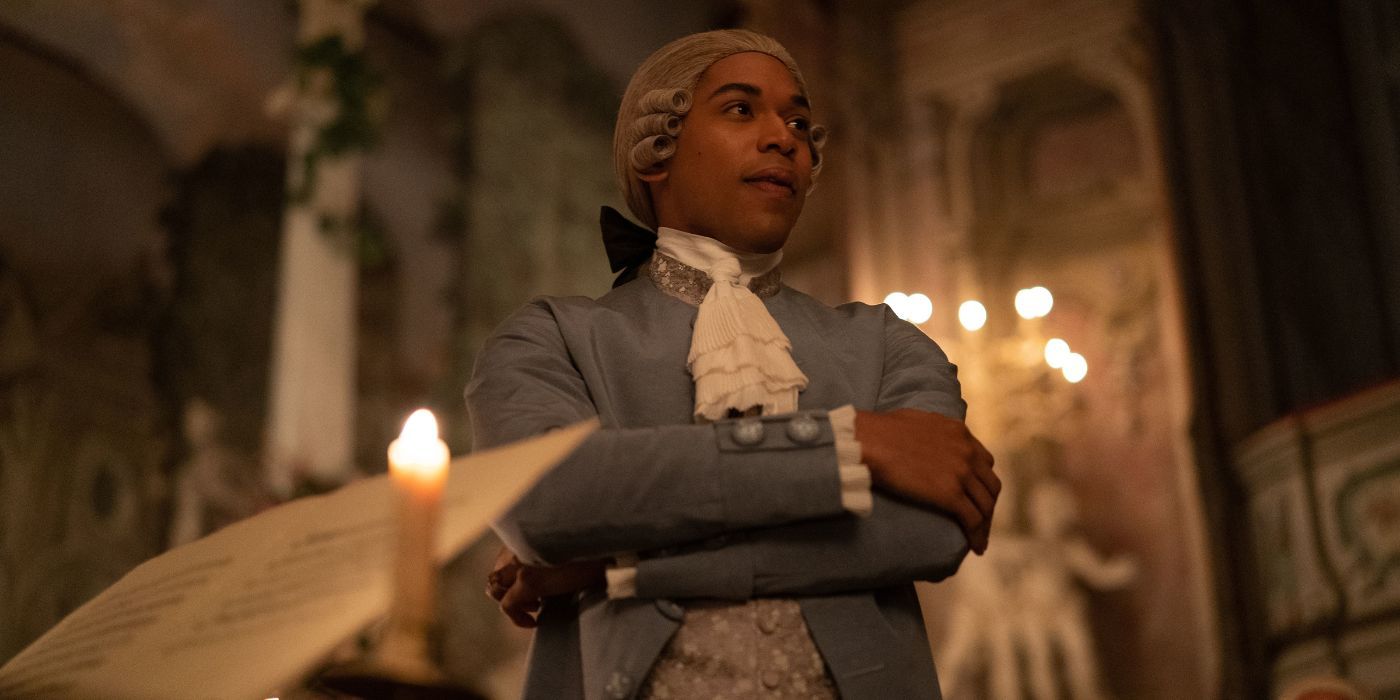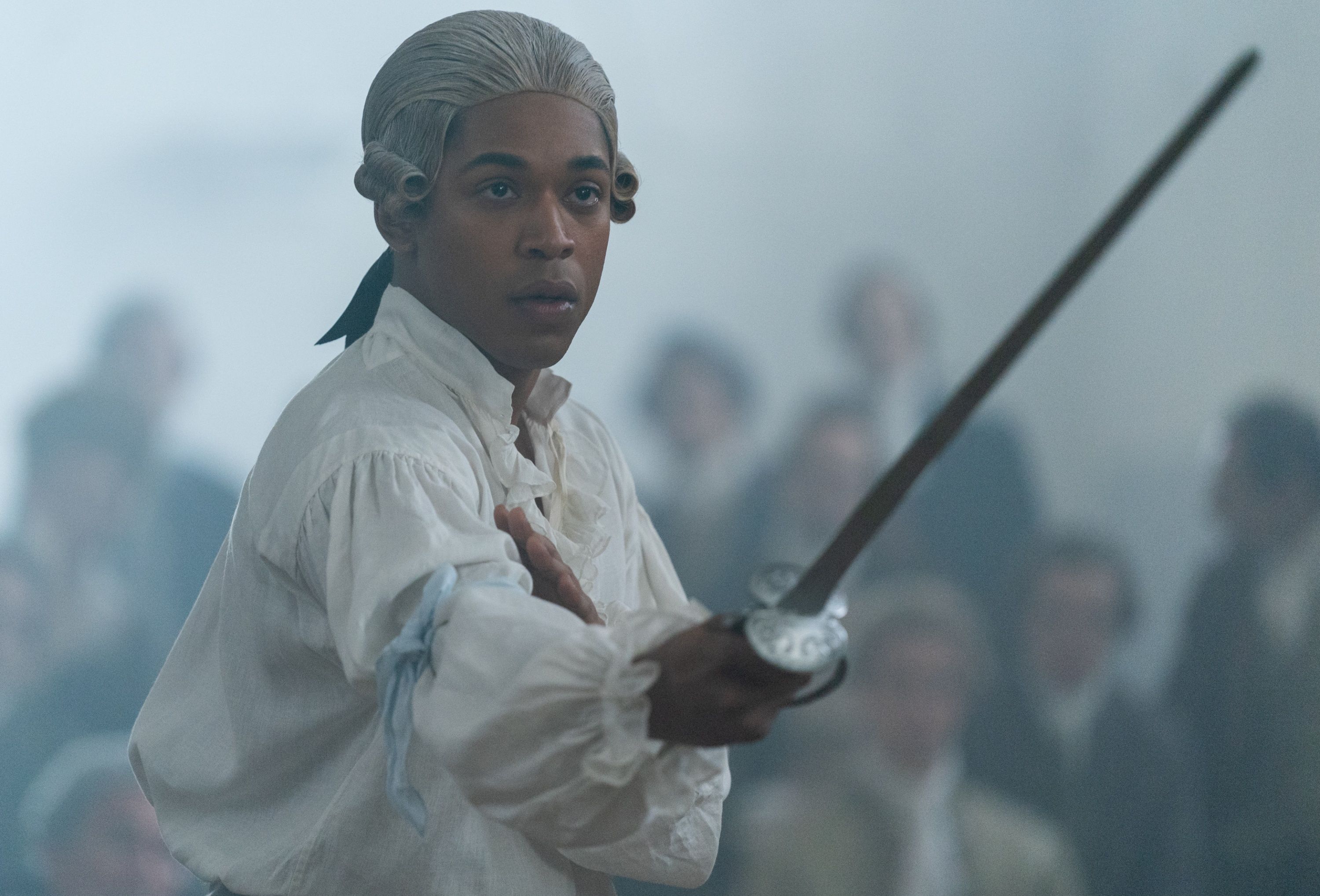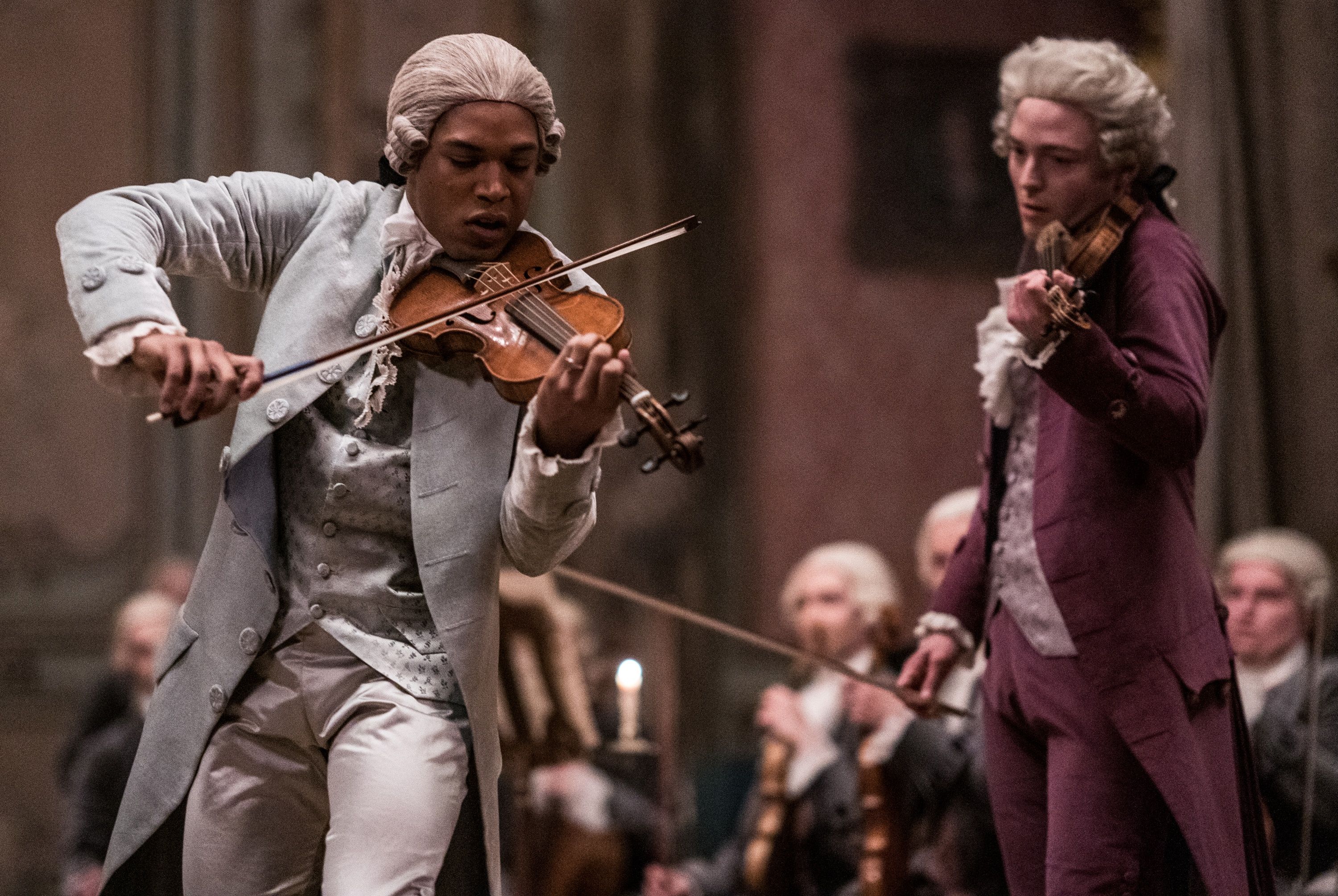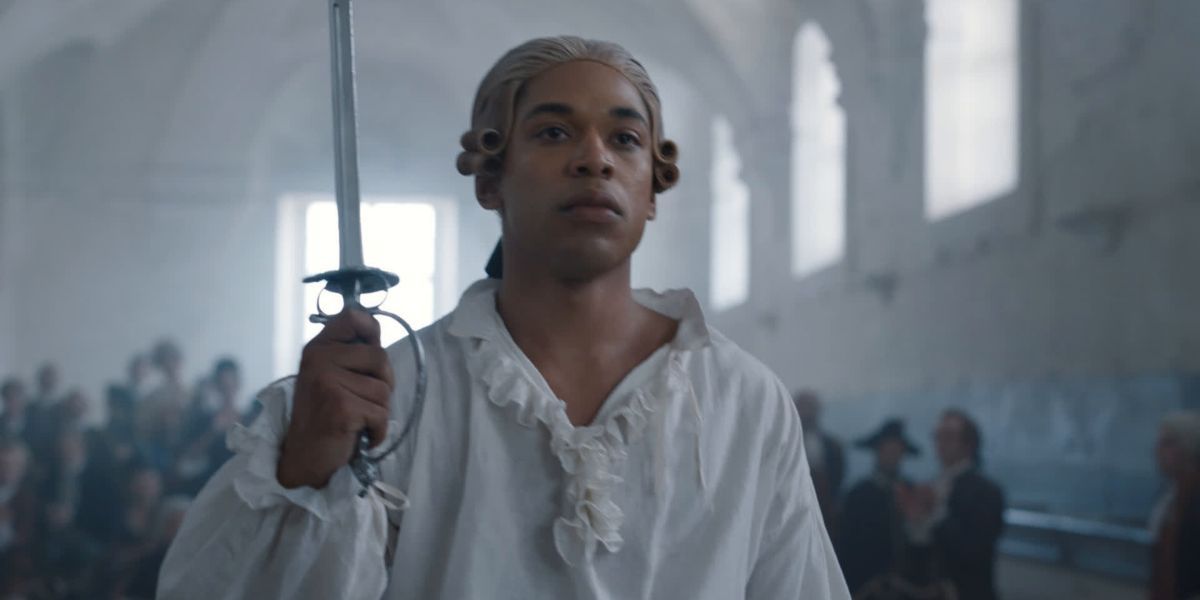Making a film based on a historical figure often results in one of two possible events. Sometimes you get a well-rounded and engaging account like the Steven Spielberg-helmed Lincoln. Other times filmmakers will stretch the truth to the point where saying your story is "based on true events" is pushing it. Seriously, Roland Emmerich, what the hell were you thinking when you made Stonewall? But Chevalier takes a different approach. The biographical film shines a light on Joseph Bologne, who was best known as the Chevalier de Saint-Georges, as well as the first well known Black classical musician. Chevalier is visually gorgeous and boasts a rich narrative, especially where Kelvin Harrison, Jr.'s performance of the titular character is concerned. Viewers won't be shocked to learn that the real life Bologne was just as interesting as what they see on the screen.
Bologne's Beginnings And Rise To Chevalier
Bologne was the son of a wealthy planter, Georges de Bologne Saint-Georges. The elder Saint-Georges had an affair with one of his slaves Nanon, and for reasons unknown took a shine to his illegitimate son. When he was 7, Bologne was taken to France and enrolled in a Jesuit boarding school by his father. When he was 15, he entered a fencing college and became one of its top pupils, beating every opponent who crossed him. Perhaps his most important match came when he was pitted against Alexandre Picard, one of the greatest fencers in France. Bologne's victory not only brought attention to his skill, but it also helped shape his beliefs — Picard had referred to him as an "upstart mulatto" prior to the match.
Shortly after this, Bologne was made a chevalier, or knight, offering him a higher station in France's society. Tragedy struck when his father passed away; due to his status as a bastard son as well as the color of his skin, Bologne wouldn't inherit his family fortune. Yet he built a fortune of his own due to his skill at fencing as well as the violin. By age nineteen, some of the world's most renowned musicians were crafting musical pieces solely for him to play. Women would even seek his company — in every sense of the word. However, it was Bologne's musical skills that would shape the course of his later life, for better or worse.
Sound, Fury And The Revolution
After years of composing his own music and leading various orchestras, Bologne's theoretical big break came when he had the opportunity to serve as the director of the Paris Opera. It was an assignment that would make any musician's career. But due to the color of his skin, three of the Opera's leading ladies filed a petition to none other than the Queen of France herself, Marie Antoinette. Undeterred by this, Bologne would compose his own operas and even invent a new form of music titled the Sinfonia concertante. The concertante became renowned for its focus on solo performers, particularly violinists.
While his music career went up and down, Bologne found himself embroiled in an affair with Marie-Joséphine de Comarieu, the wife of an esteemed military officer. Eventually her husband discovered the affair, and ended up killing Marie-Josephine's child once he learned it was actually Bologne's. Bologne was subsequently attacked while walking home, and though there are differing accounts it's widely believed that Marie-Josephine's husband attempted to take his romantic rival off the board once and for all.
Though Bologne was unlucky in love, he'd find his greatest success in the French Revolution. He joined the Revolutionary Army in 1791 and in the following year formed the first regiment of Black French soldiers. It's no surprise that the regiment earned the nickname "Legion de Saint-Georges." Bologne's military career was cut short in 1795, when he was questioned for his connections to French royalty and condemned for continuing to play his music. After Bologne's death, Napoleon Bonaparte would eventually re-establish slavery and destroy most of Bologne's work, though music scholars have rediscovered his work in recent years.
How Accurate Is 'Chevalier'?
For the most part Chevalier sticks to the major moments of Bologne's life. His attempt to lead the orchestra, as well as his affair with Marie-Josephine, make up the bulk of the film. But like any historical epic, there are certain parts and pieces missing or embellished. For example, Bologne's older brother is excised entirely from the film. There's also the matter of his mother — in the film, she is released to his care once his father dies, and helps him get in touch with his culture. In real life, she actually ended up living with his father and even having her own wealth.
But the biggest departure comes in the film's opening moments, where Bologne manages to outplay a young Wolfgang Amadeus Mozart. Yes, that Mozart. While this scene is admittedly well crafted, it feels like director Stephen Williams and writer Stefani Robinson were attempting to make Bologne seem cool...when the rest of the film proves that he's already cool. Quite honestly, the opening feels tacked on — perhaps a better approach would have been to show Bologne connecting with his mother or play up the relationship with his father who pushes him to be "excellent" so that he can overcome a biased society.
One of the most interesting things about Chevalier is the fact that its leading man shares quite a bit in common with the historical figure he's playing. Harrison Jr. not only learned to fence for a previous period piece in Cyrano, but he also picked the violin back up for Chevalier. "It felt familiar, but the biggest challenge of it all was the way Joseph plays..and trying to make sure you get that with a level of precision. Otherwise, the violin sounds like nothing. That was the biggest challenge," he told Collider in an interview. That passion shines through in Harrison Jr's performance, bringing a little-known story to life.
Chevalier is now playing in theaters.




